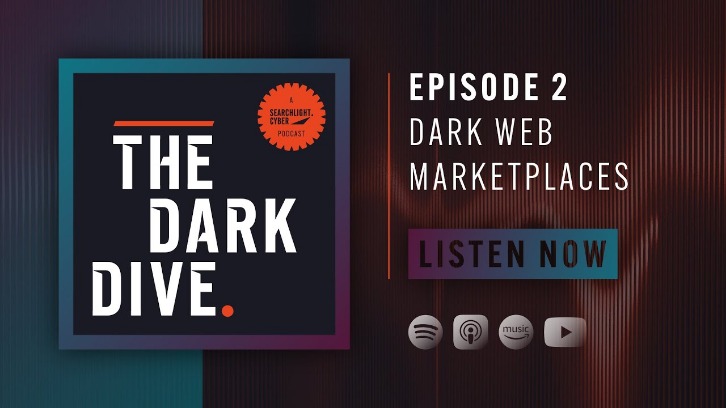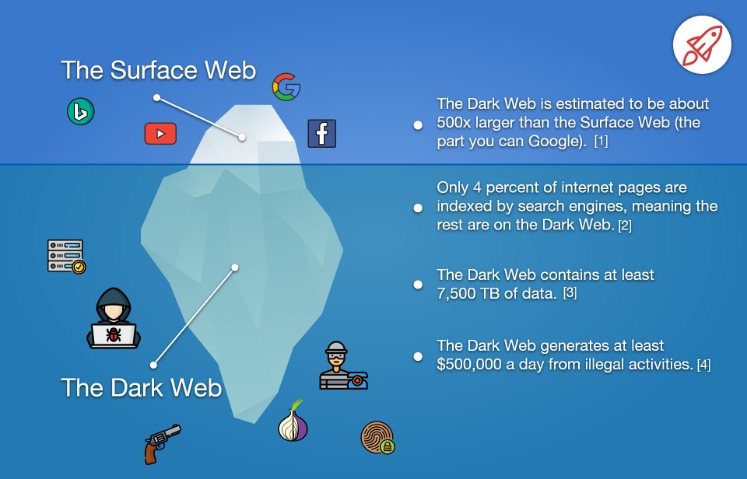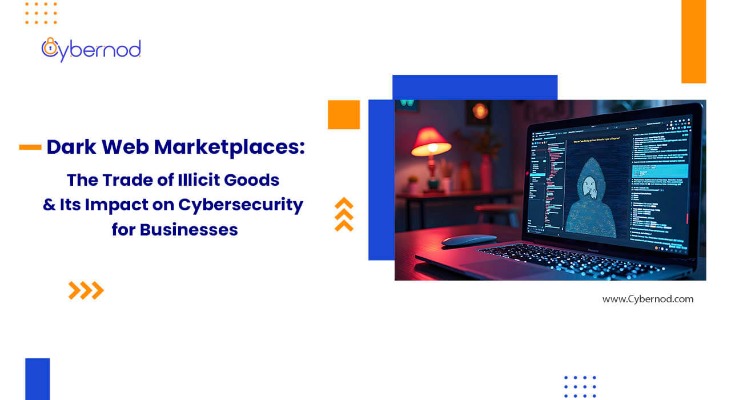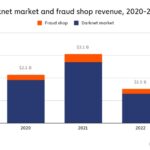Dark web websites: How to access them safely and where to find dark web links
The dark web is a hidden part of the internet that requires specialized tools and knowledge to access safely. It hosts a variety of sites, including dark web marketplaces, where users can buy and sell a wide range of goods and services. Navigating this elusive space can be risky without proper precautions, so it’s essential to understand how to connect securely and find legitimate links. To explore dark web marketplaces safely, users often utilize anonymizing networks and carefully verify sources before proceeding. For those interested in exploring further, secure access methods and reputable directories can be valuable starting points.
The heart of the internet
The dark web, often described as the hidden heart of the internet, hosts a variety of websites that are not accessible through standard search engines. Among these are dark web marketplaces, which are known for offering a range of goods and services outside the reach of mainstream regulations. Navigating this part of the internet requires careful attention to security and anonymity to avoid risks such as scams, malware, or legal issues.
To access the dark web safely, it is essential to understand the tools and practices involved. The most common method is utilizing the Tor Browser, a specialized tool designed to anonymize your internet traffic and enable access to “.onion” sites. Always download Tor from the official website to ensure it is secure and free of malware. Once installed, it acts as a gateway, allowing users to access hidden services without revealing their identity or location.
When searching for dark web links, it is important to use reputable directories or community forums that share verified links. However, since these links change frequently for safety reasons, relying on trusted sources within the privacy-conscious community can contribute significantly to a safer browsing experience. Never click on suspicious links or download unknown files, as these can compromise your device or personal information.
Here are some key safety tips for exploring the dark web:
- Always use the latest version of the Tor Browser and keep your software updated.
- Avoid revealing personal information or identity details during your browsing.
- Use a Virtual Private Network (VPN) alongside Tor for added security.
- Be cautious about transactions or exchanges on dark web marketplaces, as they may involve illegal activities or scams.
- Regularly clear your browsing data and consider using security tools to detect malicious content.
While the dark web can offer access to interesting and legitimate forums, research outlets, or anonymous communication channels, it is also home to illegal activities. Marketplaces on the dark web often facilitate the exchange of illicit goods and services, which can carry significant legal consequences. Therefore, approaching this part of the internet requires awareness, discretion, and strict adherence to safety protocols to protect yourself and stay within legal boundaries.
Dark Web Hub Searchlight Cyber
The dark web hosts a variety of marketplaces that operate outside the scope of traditional internet accessibility. Accessing these marketplaces requires specific precautions to ensure safety and privacy. While the dark web offers legitimate uses such as anonymous communication and privacy protection, it is also known for illegal activities. Therefore, understanding how to access the dark web safely and where to find reputable dark web links is essential for users with legitimate reasons for exploration.

To access dark web websites securely, it is recommended to use the Tor Browser, which enables anonymous browsing by routing your connection through multiple servers. Always ensure that your device is protected with up-to-date security software and consider using a Virtual Private Network (VPN) in conjunction with Tor to add an extra layer of privacy. Avoid revealing personal information or engaging in illegal activities while browsing dark web marketplaces or any other dark web sites.
Locating legitimate dark web links can be challenging, as many sites frequently change their addresses to evade detection and shutdowns. Reputable dark web hubs and searchlight services can assist users in discovering current links while reducing the risk of encountering malicious content. These platforms typically provide curated lists and directories of dark web sites, including marketplaces that comply with legal standards. Always verify the credibility of sources before accessing a new link, and be cautious of scams or fraudulent sites that aim to steal personal data or infect devices with malware.
In summary, safely navigating the dark web involves using secure tools like the Tor Browser, maintaining strong security practices, and relying on reputable sources to find dark web links. While dark web marketplaces can serve legitimate purposes, they are also associated with illegal activities. Responsible browsing and careful research are vital to ensure safety and compliance with legal regulations.
Dark Web Monitoring And Identity Theft Protection At Your Fingertips
The dark web is a hidden part of the internet that requires special tools and precautions to access safely. It hosts numerous marketplaces where users can find a range of products and services, some legal and others illegal. Navigating these marketplaces can be risky without proper knowledge of safety protocols and monitoring tools. Understanding how to access the dark web securely and protect your digital identity is essential for anyone interested in exploring this hidden network.
To access dark web websites safely, it is recommended to use specialized software like the Tor Browser, which anonymizes your internet activity. Always ensure your system is protected with up-to-date security software, and avoid downloading files or clicking on suspicious links. Use a secure and anonymous connection, such as a Virtual Private Network (VPN), to add an extra layer of protection. Remember, never share personal information or conduct transactions that could compromise your security.
Finding dark web links can be challenging, as many are not indexed and are shared through specific forums or communities. It is crucial to rely on trusted sources and avoid randomly browsing unknown sites, which may expose you to scams or harmful content. Various online forums and privacy-focused communities discuss and share verified marketplaces and links. Always verify the legitimacy of any link or marketplace before engaging in any activity.
Given the risks involved, dark web monitoring and identity theft protection services are highly recommended. These tools help track your personal information across the dark web and alert you to potential threats. They can prevent identity theft and mitigate damages by providing real-time updates on breaches or misuse of your data. Many advanced monitoring tools also offer secure browsing features, helping you navigate dark web marketplaces more safely.
In summary, while dark web marketplaces offer access to a variety of products and services, they come with significant security and legal considerations. Employing best practices such as using the right tools, remaining vigilant, and leveraging monitoring services can help you explore the dark web more securely and protect your personal information from malicious actors.

The Dark Web vs Deep Web: What’s the Difference?

The terms “Dark Web” and “Deep Web” are often used interchangeably, but they actually refer to different parts of the internet. The Deep Web encompasses all web pages that are not indexed by standard search engines, including private databases, academic journals, and subscription services. In contrast, the Dark Web is a small portion of the Deep Web that is intentionally hidden and accessible only through specialized software. It is known for hosting anonymous activities and illegal marketplaces. Understanding the distinctions between these layers of the internet is essential for navigating online safety and exploring topics such as dark web marketplaces, which operate within this concealed part of the web.
Darknet Markets Explained: Navigating the Hidden Web
The dark web and deep web are terms often used interchangeably, but they refer to different parts of the internet with distinct characteristics. The deep web encompasses all web pages that are not indexed by traditional search engines, including private databases, academic resources, and confidential information. In contrast, the dark web is a small, intentionally hidden subset of the deep web that requires specific software and configurations to access, such as the Tor browser. It is known for hosting anonymous activities, some of which are illegal.
The primary difference between the dark web and deep web lies in accessibility and purpose. While the deep web is mostly lawful and includes everyday private content, the dark web is often associated with illicit transactions and underground marketplaces. Darknet markets, a notorious aspect of the dark web, facilitate anonymous trading of goods and services that range from legal to illegal items. These marketplaces operate on encrypted networks, making it challenging for authorities to trace transactions and identify users.
Understanding the nature of dark web marketplaces is crucial for grasping the risks and opportunities present within the hidden web. These platforms provide a space where users can buy and sell a variety of products, including drugs, counterfeit currencies, stolen data, and more. Because of the strong emphasis on anonymity and encryption, navigating these markets can be perilous for both buyers and sellers, exposing them to scams, law enforcement action, and other dangers. Despite this, some individuals and entities use dark web marketplaces for legitimate reasons, such as protecting privacy in oppressive regimes or sharing sensitive information securely.
Overall, while the deep web includes benign and necessary parts of the internet, the dark web’s marketplaces highlight the covert and often risky activities that occur behind the scenes. Awareness of these differences is essential for understanding how the hidden web operates and the implications it has for security, privacy, and law enforcement efforts.
What are Darknets & Dark Markets?
- Law enforcement agencies have been making significant strides in taking down major dark web marketplaces in recent years.
- Dark web browsers and search engines do a lot of work to mask user identities, but you’re never completely untraceable.
- LifeLock Standard helps safeguard your personal information, accounts, and identity.
- We will explore the various sorts of products regularly sold and well as how much the prices of products can vary within or between product categories.
The dark web and deep web are often confused, but they refer to different parts of the internet with distinct characteristics. The deep web encompasses all online content that isn’t indexed by traditional search engines, including private databases, academic resources, and personal accounts. It is vast and mostly legitimate, used for everyday activities like banking, email, and subscription services. In contrast, the dark web is a small subset of the deep web that is intentionally hidden and accessible only through specialized software such as Tor. This part of the internet is known for its anonymity and is often associated with illicit activities, including dark web marketplaces where illegal goods and services are bought and sold.
Darknets are overlay networks that require specific software for access, with Tor being the most common. These networks facilitate anonymous communication and transactions, making them appealing for both privacy-conscious individuals and malicious actors. Dark markets operate within the dark web, serving as digital black markets where vendors and buyers can engage in transactions often involving drugs, counterfeit currency, stolen data, and other illegal items. Due to their clandestine nature, these markets are challenging to regulate and monitor, posing significant challenges for law enforcement agencies worldwide. The existence of dark web marketplaces highlights the ongoing struggle between maintaining online privacy and combating illegal activities in these hidden corners of the internet.

Dark Web Marketplaces: Emerging Threats and Law Enforcement Strategies
The dark web is often misunderstood as a singular entity, but it actually consists of various layers of the internet that differ significantly in their accessibility and purpose. The deep web encompasses all web pages that are not indexed by standard search engines, including private databases, academic resources, and personal accounts. In contrast, the dark web is a small portion of the deep web that requires specific software, such as Tor, to access. While the deep web is generally legitimate and used for privacy and security, the dark web is notorious for hosting illegal activities, including illegal marketplaces where illicit goods and services are bought and sold.
Dark web marketplaces are a prominent feature within the darker corners of the internet, serving as platforms for transactions involving everything from illegal drugs to counterfeit documents. These marketplaces operate anonymously, making it difficult for law enforcement agencies to track transactions and identify perpetrators. As a result, they pose significant challenges to law enforcement, which deploys various strategies to combat illegal activities. These include monitoring marketplace activity, infiltrating vendor networks, and using advanced digital forensics to trace transactions back to individuals. Despite these efforts, many marketplaces continue to evolve, often shifting domains and adopting new security measures to evade detection.
Emerging threats within dark web marketplaces include the rise of sophisticated scams, the sale of stolen data, and the trafficking of illegal weapons. Law enforcement strategies focus on disrupting these marketplaces through coordinated takedowns, dismantling vendor networks, and raising public awareness about the risks of engaging in such activities. Efforts are also aimed at increasing international cooperation to improve intelligence sharing and enforcement actions. While these strategies have led to the takedown of several large marketplaces, the persistent adaptability of illicit actors ensures that dark web marketplaces remain an ongoing challenge for global security and law enforcement agencies.


